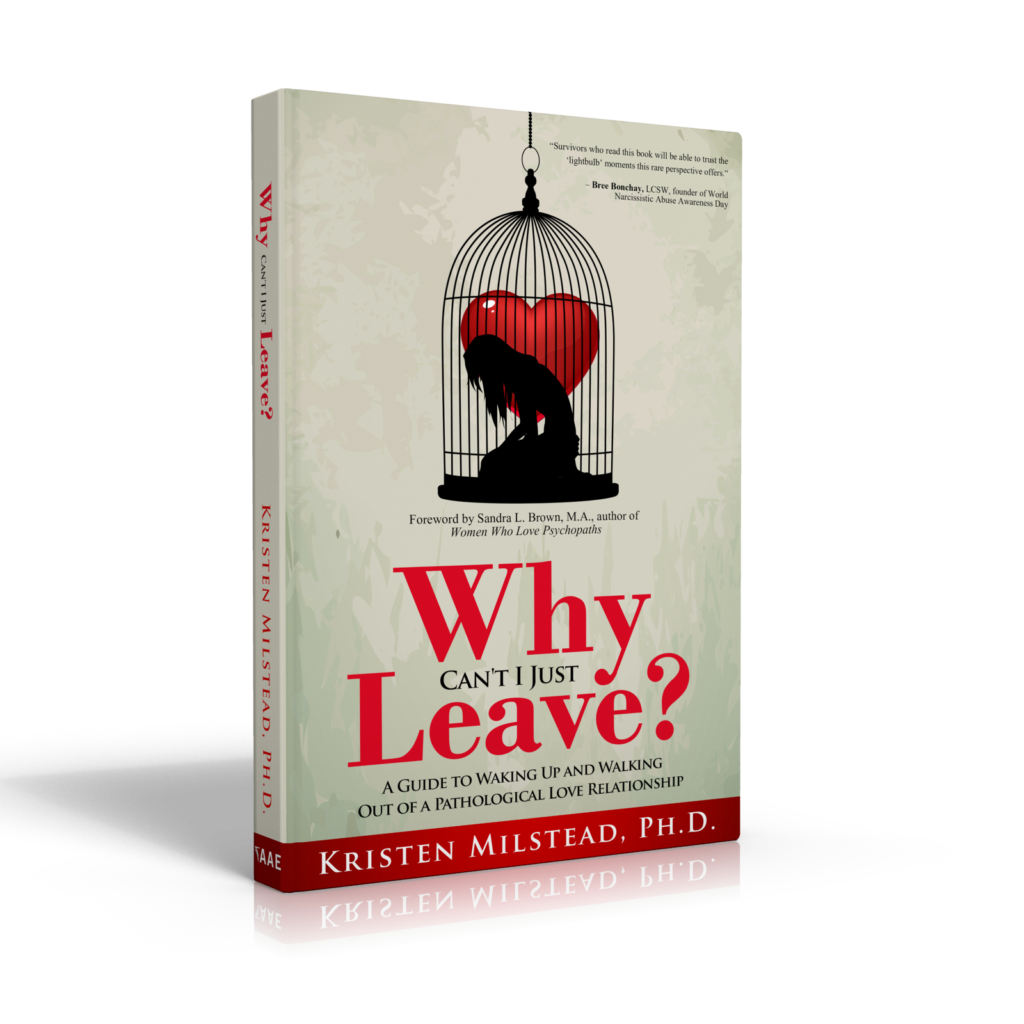If you’re reading this, then you have at one time believed– or, more likely, believe right now because you are reading this– that your partner is a narcissist, psychopath, or sociopath whose behavior fits the pattern of a narcissistic abuser. It may even be an obsession at times: “Is my partner a narcissist or not?”
If you’re still in the relationship, you probably have doubts. Sometimes, you’re just not sure. And, let’s be honest, you don’t want to believe it’s true.
You may even have them if you’re not in the relationship anymore.
The whole thing sounds movie-plottish.
It sounds dramatic.
It sounds so hard to wrap our minds around the idea that the person we have stripped out our souls for and offered them up to could be so… heartless. Or at least just not care in the same way that we do. There. I’m adding nuances.
That doesn’t even seem possible.
But maybe, mostly, it sounds like such a death sentence for all hopes for the relationship of ever turning out to be all that we want it to be.
Answering the Question of Whether Your Partner is a Narcissist by Confronting the Sources of Denial
A relationship with a narcissist means being in a war. As we face our own denial, the rational part of us wants to resolve the cognitive dissonance in favor of believing that our partner is actually a good, decent person who is just going through hard times or has bad days. Even as we read about all of the warning signs of narcissistic abuse, still we suppress them and find ways to tell ourselves they don’t apply.
I’ve written extensively about how being with a narcissist is dream-like because of this suppression of our ability to understand how we are being exploited and then how we have the power to overcome the exploitation and leave, and that there seem to be five stages in which leaving a narcissist occurs.
The stages are:
- Awareness of the existence of abuse, since often either the abuser has secret lives or does not start to abuse until far into the relationship or both;
- Understanding that what is occurring is, in fact abusive, as the behavior may be such a contrast to the earlier behavior that there may be confusion or denial or the partner may excuse the abuses as one-offs; and
- Acceptance of the abuse after the partner realizes that the behavior is actually the underlying current of the relationship and has had long periods where the abuse cannot be denied.
- Recognition by the partner that the abusive psychological tactics used by the abuser to maintain can and must be overcome by the partner once the partner understands that the abuser will not change.
- Taking action to go no-contact with the narcissist both physically and psychologically.
There is an inevitability to the progression of a relationship with a narcissist, and yet how quickly one can proceed through these stages can depend upon many things. One of those things is a state of denial on our parts.
In my case, there were three primary places from which the information or influences came from that assisted me with denying and repressing what had happened, some obvious and some not-so-obvious. It’s important to recognize where the denial comes from in order to take note of the instances of it when we see it and perhaps dispel it more quickly.
Source of Denial #1: The Narcissist
The narcissist in our lives is the first and primary source of information about what rationalizations to use to help us to deny either the probability that our partner was a narcissist or the harm that was being caused.
Narcissists use a variety of tactics to condition us that things are not what they appear. It all starts from the beginning of the relationship when they set the stage with pity ploys, when they tell us about how their exes hurt them or their bad childhoods.
They use many different kinds of excuses later after they have done something to hurt us that we will then accept, that are often actually forms of gaslighting that can result in cognitive dissonance.
“I was lonely.”
“I was cheated on so much in the past, I don’t trust anyone.”
“I was young and immature and didn’t know what I was doing but I’ve learned my lesson.”
“I just told her what she wants to hear.”
“If you hadn’t left me, I wouldn’t have gone back to her.”
They are able to make these rationalizations sound reasonable even when we may know the truth– and we may suppress that truth– because of the initial impression they have created in our heads intentionally at the outset of the relationship.
This is the setup of a relationship with a narcissist. If the information doesn’t fit, we will dismiss it in favor of the initial beliefs, and it’s not a flaw in our character that we are doing so. The narcissist is taking advantage of cognitive biases that exist in all of us.
Source of Denial #2: Our Own Minds
We also likely have biases of our own that existed already that enable us to deny and rationalize the betrayals and abuses of the narcissists.
Looking back, I had so many and I’m going to categorize them and in the future I’m going to begin to pick them apart so I can remain true to myself but ensure that no one can ever do this to me again.
Here are a few of mine. See how many of these look familiar.
Some of the rationalizations were due to my beliefs about the world and the goodness of people, and giving the others the benefit of the doubt.
Everyone deserves a second chance.
No one is perfect.
I’ve done things in my past that I regret doing and I would be a hypocrite if I didn’t forgive him and let him try to make it up to me.
He’s been hurt before and people who have been hurt sometimes act out of that hurt.
Things can get better if I just be patient.
People want to do the right thing if given the chance.
Surely he wouldn’t do this to me on purpose. Now that he understands how much he has hurt me, it won’t happen again. He’s got to know how hurtful this behavior is.
Some of the rationalizations I had were due to my misunderstanding of what a narcissistic sociopath was and my likelihood of meeting one.
“If he was a sociopath, he would…
…be trying to steal from me.”
…never be able to show me this much loving behavior sometimes.”
…would be doing things like psychopaths do, like trying to kill people.”
“I know what a psychopath looks like.”
“If I met a real narcissist, I’d know.”
“Meeting a psychopath could never happen to me.”
“I know all about crime and domestic violence. This could never happen to me.”
And some of the rationalizations I had were due to my own fears about what it might mean about me or my judgment if it were true:
“Surely he wasn’t faking his love for me. Those moments were real. This couldn’t have all been a lie.”
“I thought I was a good judge of character.”
“If it’s true he is a narcissist or psychopath, then I was never a person to him the entire time and I showed him who I really was but he never really loved me.”
These are the things we have to face inside of ourselves, or at least be willing to put on hold and deal with at some point after the relationship ends if we are going to get out of the relationship.
Source of Denial #3: Books/Resources on Narcissism
Finally, I realized that a source of denial for me came from the books and other resources I read while in the relationship to try to understand what was happening to me.
Sometimes I would read a description or explanation of a tactic or what a narcissist’s life or background should look like that did not appear to fit. I was so confused about what was happening that those descriptions enabled me to deny that my ex-boyfriend was, in fact, a narcissist.
He doesn’t fit that criterion, maybe he isn’t a narcissist after all.
Supposedly they don’t have any friends. He seems to have had the same friends for a long time. Maybe he’s not a narcissist after all.
Lots of people talk about how their partners abandon them when they have hard times. My boyfriend often takes care of me when I’m sick. I think I’ll just stop reading all these articles and listen to him because I guess I was wrong.
What I failed to realize while in the relationship is that:
- Narcissism falls on a spectrum and there are types of narcissists sometimes of different methods of achieving the same goals so there are always going to be some variations. Some are physical abusers and some aren’t. Some engage in bigamy, and others merely cheat on their partners relentlessly. Some are covert and some are overt. Some enjoy hurting their partners and for some, they hide their hurtful behavior so they can meet their objectives for narcissistic supply in other ways.
- There was much more overlap than variation. I was not thinking clearly and with the excuses offered by my ex-boyfriend, it was all too much pressure to deny that he was, in fact, a narcissist while I was actually in the relationship.
How I Had to Deal With Each Type of Rationalization
- Face my fears. Recognize where I was making excuses
- Stop trying to seek answers from him and get my own closure.
- Get away from him to avoid being swayed by his influence so I could deal with the other two. Recognize how unwieldy his explanations were.
- Recognize what actually applied and what the articles were talking about/reconcile.
- Realize he was toxic and he wasn’t going to change but I had to get away. Telling myself that over and over was the only thing that mattered.






6 Comments
Suzanne
I waa engaged to a guy like this and just broke it off. I tried breaking it off many times. He kept running back apologizing. I have done it for good. Follow your gut!
Allison
It’s been 7 months and although he’s reached out several times I’ve ignored all but one to respond as to why I left after my discard and to hear myself express myself to him. I did not connect with with him and after I left him that text I told him to stop contacting me. It set me back a couple of weeks but I’m still glad I stood in my power and spoke up. Now I have no desire to speak to him. I’m doing a lot of inner child processing with my therapist so that I don’t do this again. I will done it my entire adult life and I’m ready to take responsibility for me part and to keep the no contact going. Thank you for your work.
Kris
I always feel a simultaneous heartbreak that this happened to someone else, but immense relief when I read your page. We survivors all think and feel so alike. My own therapy is ongoing and I am coming to terms with the fact I was basically in the presence of evil. I feel like I got out of bed, looked down and saw some deadly snake or spider in the sheets that somehow didn’t kill me while I was asleep. Yes, I survived, but coming so close to obliteration takes a serious toll.
Kristen Milstead
Hi Kris: Thank you for taking the time to leave a comment. I can relate to what you wrote. Sometimes the amazement that I escaped and that all of that actually happened was and still is like a dream to me. The way you describe it is perfect. -Kristen
Kathleen
Spot on!! Really true stuff. I’m so glad to be through most of it all. I’m mainly still in the ruminations on how the new one is possibly enjoying the honeymoon phase still. It’s almost a year so I can’t imagine she’s not getting bad treatment yet… but There’s no way for me to validate that so I still torture myself- bummer huh. Even though I have all this information and know I’m better off without-i crave the failure and vindication. Aaaaarrrrrggggghhhhh – just look at our president- they just “get away’ with all their bs and they the narcs-never get hurt- because they don’t care.
Kristen Milstead
Hi Kathleen: I know what you mean. It’s difficult to free ourselves from what I call the “negativity” of wanting to see bad things happen. I had to keep telling myself that that was what he would want– even if he was having a hard time, he would want me to see it and have a reaction to it. Any way he could try to control my attention in his own way would have been providing him with some kind of fuel. You’re absolutely right– they don’t care, and that’s why I think it’s such a good idea to stop focusing on them. They are only focused on themselves and don’t deserve our focus too. -Kristen